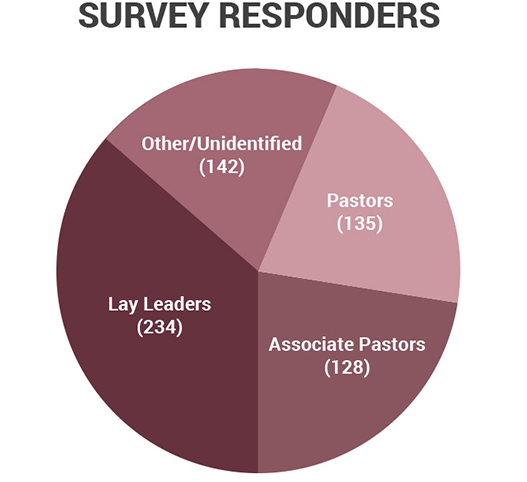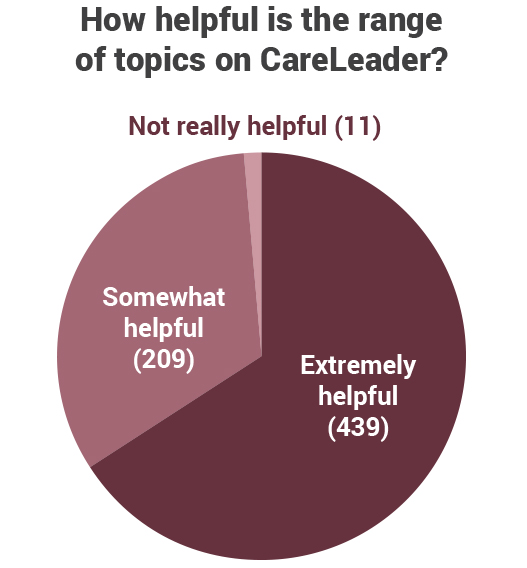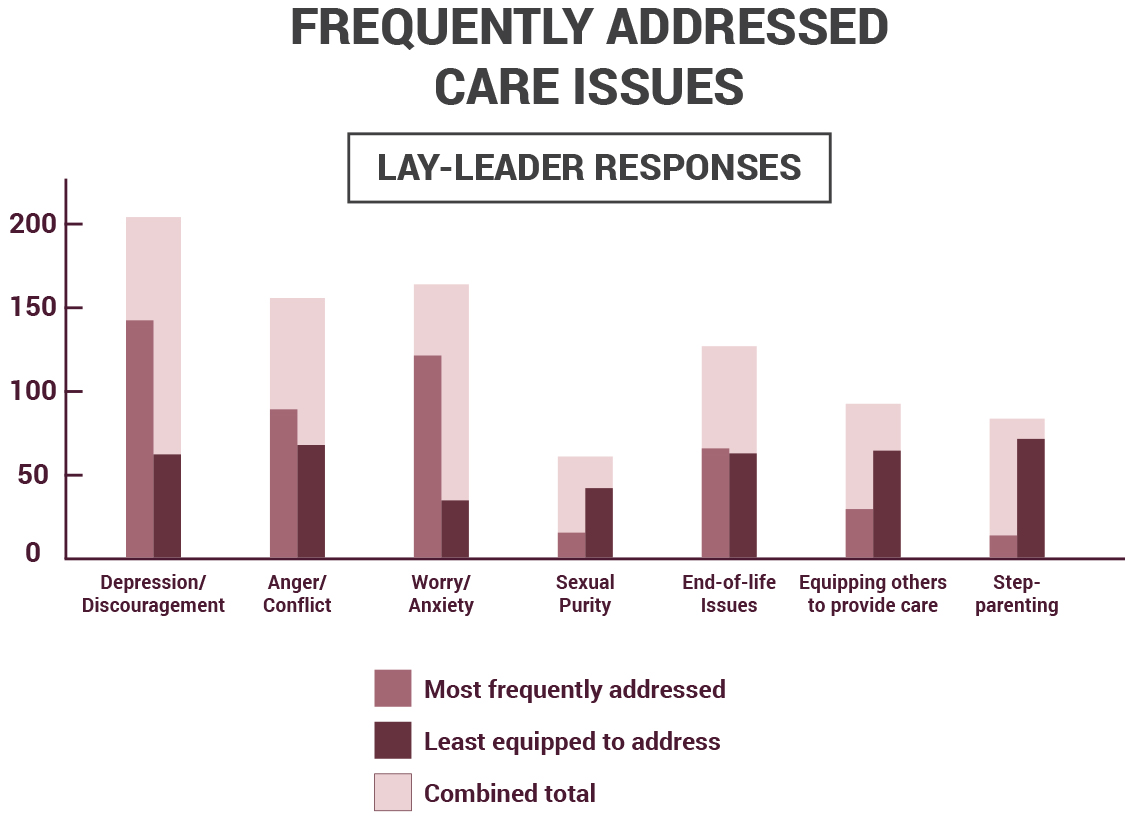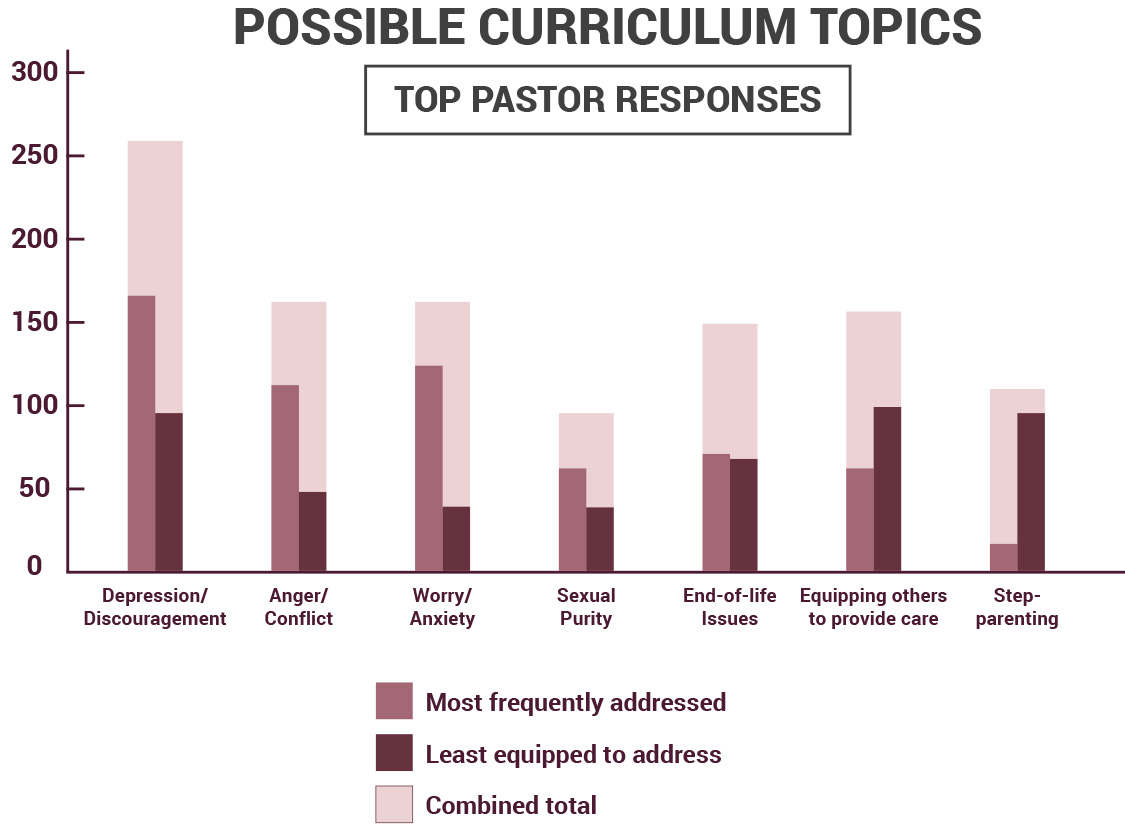This summer, we asked CareLeader Weekly readers to respond to a survey that would give us important feedback so that we can serve you better. We were so blessed by the number of people who took the time to fill out the survey! Thank you! In this article, I want to share with you a little of what we learned and some suggestions about how we might use this information. At the end of this post, I also have two follow-up questions I’d like to hear your responses to.
Who were the respondents to the survey?
There were 659 completed surveys; here is a breakdown of the roles represented among the respondents:
In terms of gender, 54 percent of the respondents were female, and 46 percent were male. It was encouraging to know that the responses represented male and female perspectives so well. In terms of age, the majority of respondents were over fifty years old, giving us some confidence that the answers to our questions reflected a significant amount of combined years of ministry experience.
How are we going to use this information?
We plan to use the survey information to improve the format and content of CareLeader Weekly and to guide our creation of new curricula.
Suggestions for CareLeader Weekly
We want to provide you with practice-oriented articles that contribute to the refining of your ministry skills, and it was interesting to receive your comments about this goal. Here’s what you said:
For most of you, the articles have been “extremely helpful” (439 responses) or “somewhat helpful” (209 responses), and their length has been “just right” (562 responses). A few of you requested shorter articles or articles that contained more bullet points to make digesting the content even easier. We want to be sensitive to the time constraints you face, so we will keep these suggestions in mind.
Regarding the lay leaders who responded to our survey, the following chart shows the Care Issues they most frequently encountered and those they felt least equipped to address if called upon to do so:
We thought that pastors would be interested to know what types of ministry opportunities lay leaders face. This knowledge will also inform the Care Issues we will address in future editions of CareLeader Weekly.
In addition, here are other suggestions we received for future topics in CareLeader Weekly (and perhaps topics for future ebooks):
- Emotional trauma and needless worry
- Ministering to children who have lost parents
- Counseling case studies on a variety of topics
- Caring for those who can’t care for themselves
- Discouragement and depression
- Pastoral “first aid” in crisis situations
- Tips for facilitating care groups
Suggestions for future curricula
As we considered possible future curricula for churches, we were especially interested in the responses from pastors (including associate and assistant pastors). We learned about what pastors most frequently faced in their pastoral care duties and what they thought they were least equipped to handle. Here is a bar graph representing their responses:
Here’s what we’re thinking
We made the following observations based on these comparisons:
- The topic of discouragement/depression looms large among those to whom you minister. However, knowing how to respond to this issue is not easy due to its inherent complexities.
- Worry and anger/conflict are also significant issues, which are very often tied to the experiences of discouragement and depression.
- End-of-life issues are becoming more frequent as our population ages, and elderly parents are in need of more intensive daily care.
- Equipping others to provide pastoral/shepherding care is important for a couple of reasons. First, pastors are not supposed to provide all of the pastoral care in a congregation. According to Ephesians 4:12, they are supposed to “to equip his [Christ’s] people for works of service, so that the body of Christ may be built up.” Second, pastors usually are expected to do too much when it comes to pastoral care or shepherding. We all have limitations! From your written comments, it is clear that you are feeling the weight of having so many opportunities for ministry but not enough hours in the week to reach out effectively to those in need.
Ideas for new curricula
Having discussed the results with the rest of the CareLeader team and following up the survey by holding several focus groups, we have come to tentative conclusions about new curricula:
- Possible Curriculum #1: Equipping people to be more intentional and skilled at reaching out to others in need. This topic is, in essence, what friendship among believers should look like, and we think it could be structured well by using the “one another” passages in the New Testament.
- Possible Curriculum #2: Helping people who are discouraged or depressed. Life in a fallen world is challenging, and it is easy for anyone to become discouraged or even depressed when facing trials.
- Possible Curriculum #3: Encouraging sexual purity among men. This topic is offered in response to the number of times articles about it have been viewed on CareLeader.org. This curriculum would be set up as a campaign to encourage sexual purity rather than as a program for those already steeped in sexual immorality.
So what do you think?
Finally, I have two more questions for you.
Thank you again for your responses. We look forward to more opportunities to partner with you as you “seek first the kingdom of God and His righteousness” (Matt. 6:33) in your ministries.




